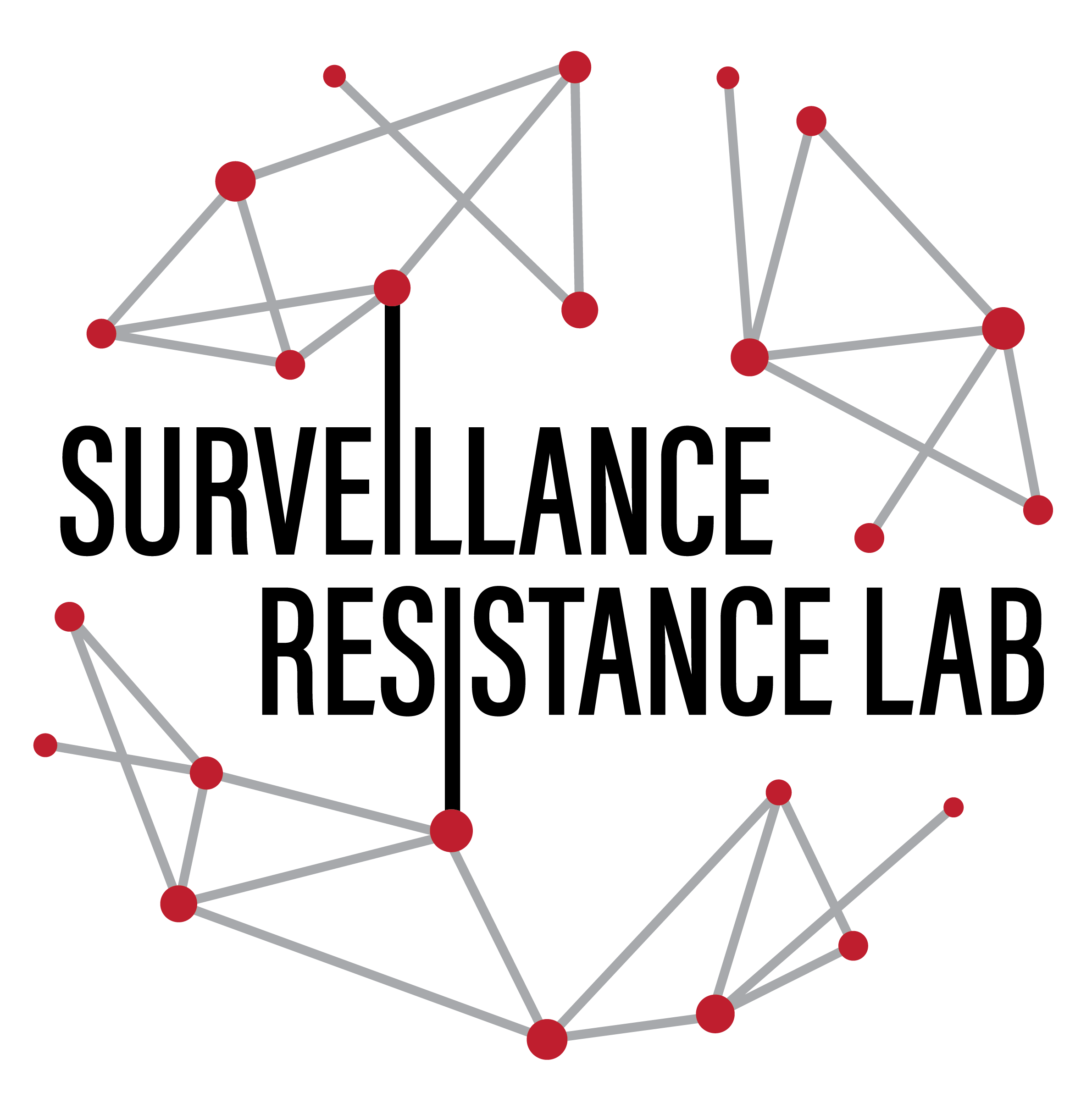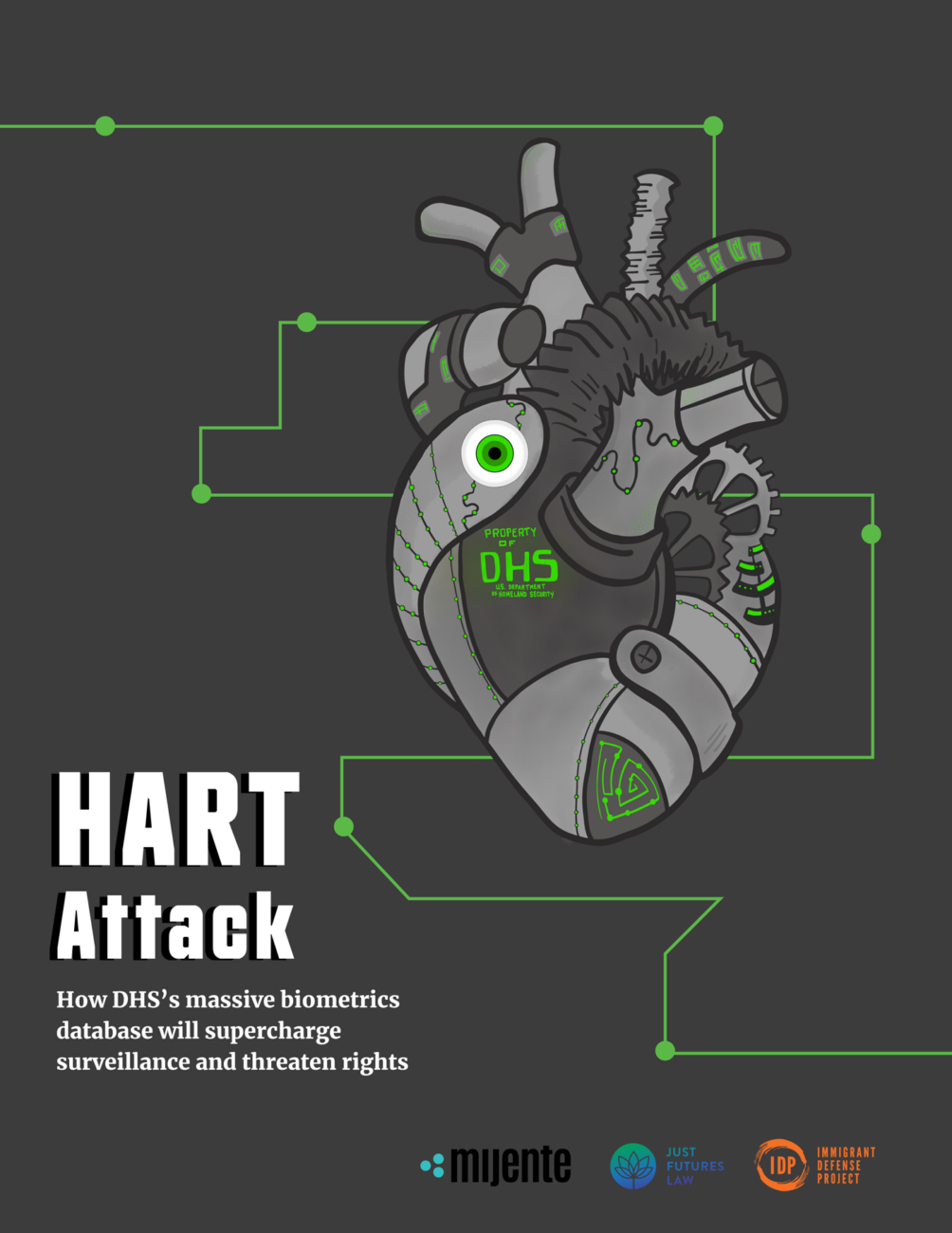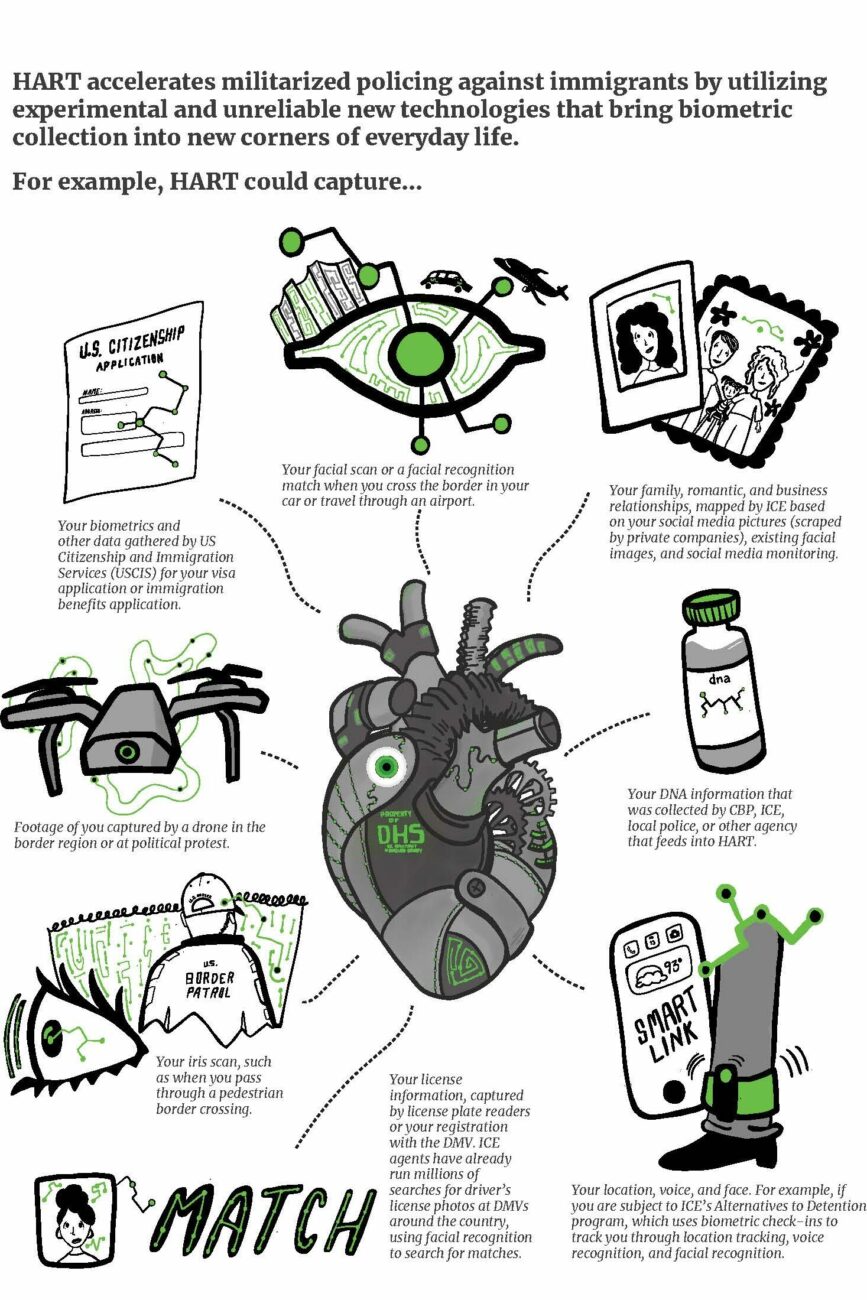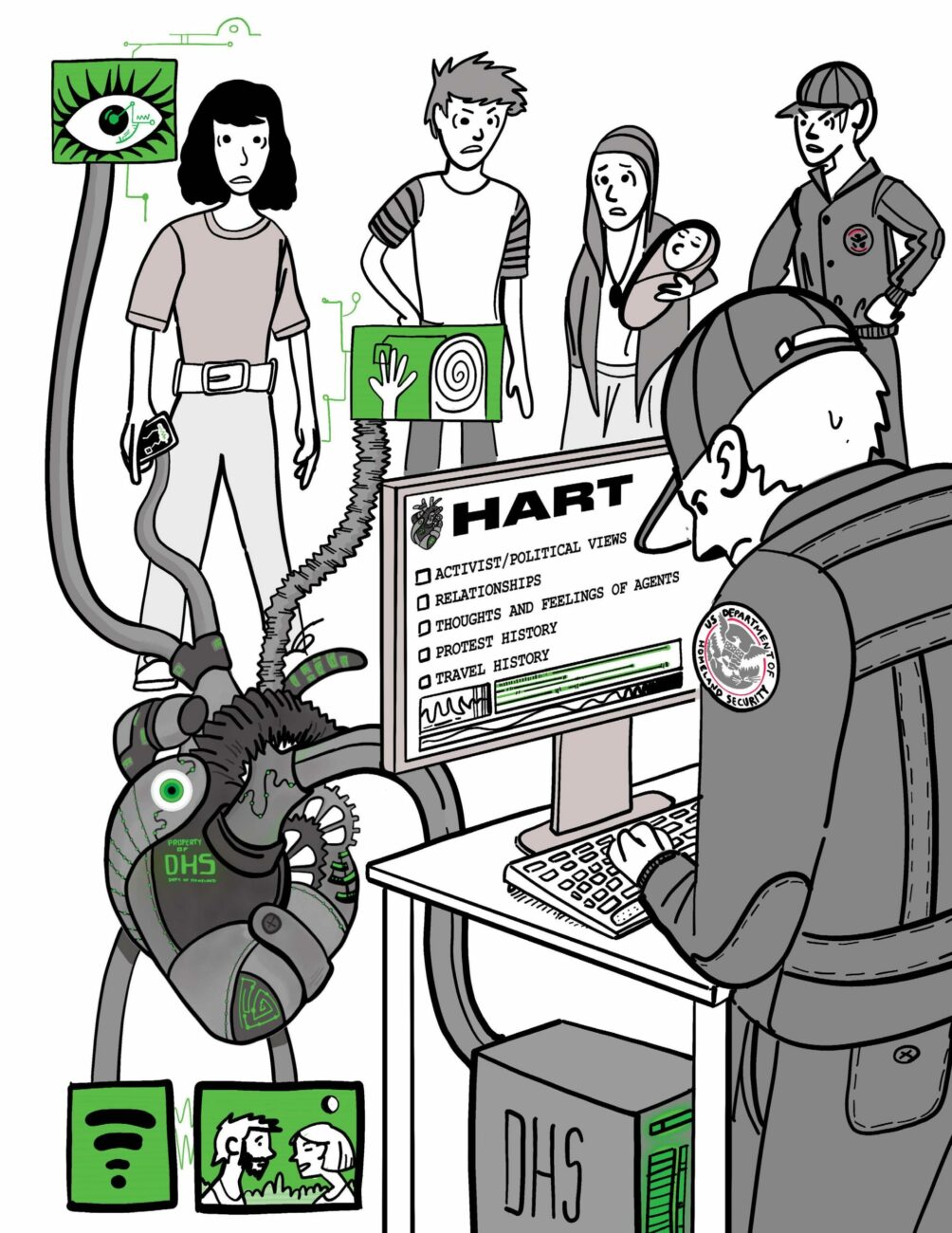The US Department of Homeland Security (DHS) is building a $6.158 billion-dollar, next-wave biometric database that will vastly expand its surveillance capabilities and supercharge the deportation system. The Homeland Advanced Recognition Technology System (HART) will collect, organize, and share invasive data on over 270 million people (including juveniles), with that number projected to grow significantly. This data will come from federal agencies including DHS and the FBI, as well as local and state police, and foreign governments.
Powered by military-grade technologies, HART will aggregate and compare biometrics data including facial recognition, DNA, iris scans, fingerprints, and voice prints—most often gathered without obtaining consent or a warrant. This will allow DHS to target immigrants for surveillance, raids, arrests, detention, and deportation. HART could be used to identify people in public spaces, creating chilling consequences for people’s rights to protest, assemble, associate, and to live their daily lives. HART threatens to violate human and privacy rights at an exponential rate, particularly in Black, brown, and immigrant communities already facing discriminatory policing and surveillance.
Despite the terrifying risks, HART remains a black box—shrouded in secrecy with virtually no oversight and accountability mechanisms. Although only in phase one of its development, HART has become vastly more expensive than anticipated— generating massive revenues for first, Northrop Grumman (a military contractor), and now, Veritas Capital (a billionaire private equity firm). While troubling questions over its privacy and human rights violations remain, Congress continues to fund HART, even though it has failed to meet every milestone in its government contract.
Our report explains the dangers of HART by diving into the system’s mechanics, costs, and biometric and biographic data sources. We spotlight the companies profiting from HART’s development, and the agencies, private companies, and foreign governments that will contribute to and access its data. We outline the short- and long-term civil, privacy, and human rights risks. The underlying role and impact of HART will be to turbocharge DHS’ unchecked power— to approve or deny immigration benefits, assemble target lists for ICE raids, expand the tech border wall, and to facilitate surveillance, arrests, immigrant detention and deportation. For such reasons, we call on DHS to dismantle HART. We also call on Congress to freeze funds dedicated to HART as an interim step.
HART presents unacceptable risks and dangers:
- HART will powerfully expand DHS’ surveillance capabilities, enabling ICE, CBP, and other domestic and foreign policing agencies to fuel discriminatory policing and violate the rights of hundreds of millions of people. HART will be especially pernicious for already heavily-surveilled and overpoliced Black and brown communities.
- HART will harvest and exploit facets of our day-to-day lives, jeopardizing the rights of political activists and freedom of assembly, and take away our privacy.
- HART will include invasive personal and biometric data, which could include unverified information about people’s professional roles, religious affiliations, banking information, familial connections and friendships, romantic partnerships, personal activities, political views, travel patterns, and more.
- HART will weaponize information that people are required to submit to access basic government services, such as driver’s licenses.
- HART’s will rely on untested, racially-biased, and unreliable biometrics, as well as data from controversial companies like Clearview AI.
- HART will contain data on juveniles, including biometrics.
- HART is built on data collection without consent.
- DHS “cannot ensure accuracy” and quality of the data in HART, since it says it does not own the data—but it will retain and use this data for at least 75 years nonetheless.
- HART is explicitly designed to shield DHS from scrutiny, accountability, and consequences for its use of data, even when it violates civil and human rights
HART’s so-called “redress” measures are effectively non-existent, leaving people with almost no way to challenge content in the massive database, access their information, and correct errors in their data.
Read and download the full report here.



